Frederick Douglass escaped slavery in 1838 and became one of the most powerful and eloquent orators of the abolitionist movement. Listen to his 1852 Independence Day talk, organized by the Rochester Ladies’ Anti-Slavery Sewing Society and performed by James Earl Jones.
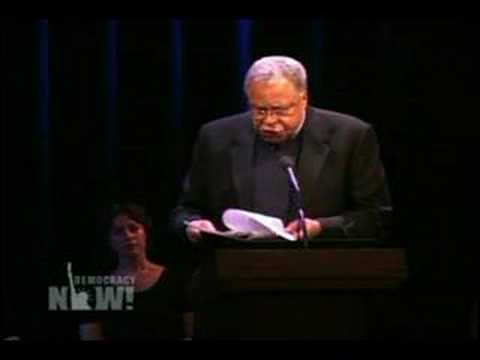
Watch this video on YouTube
Actor James Earl Jones reading the speech during a performance of historian Howard Zinn’s acclaimed book, “Voices of a People’s History of the United States.” He was introduced by Zinn.
The Meaning of July Fourth for the American Slaves – 1852
A Speech By Frederick Douglass
Born into slavery in Maryland around 1818, Frederick Douglass became a key leader of the abolitionist movement. During the 1850s, Douglass typically spent about six months of the year traveling extensively, giving lectures. During one winter — the winter of 1855-1856 — he gave about 70 lectures during a tour that covered four to five thousand miles. And his speaking engagements did not halt at the end of a tour. From his home in Rochester, New York, he took part in local abolition-related events.
On July 5, 1852, Douglass gave a speech at an event commemorating the signing of the Declaration of Independence, held at Rochester’s Corinthian Hall. Addressing the Rochester Ladies’ Anti-Slavery Society, in biting oratory he told his audience, “This Fourth of July is yours, not mine. You may rejoice, I must mourn.” And he asked them, “Do you mean, citizens, to mock me, by asking me to speak to-day?”
“What, to the American slave, is your 4th of July? I answer; a day that reveals to him, more than all other days in the year, the gross injustice and cruelty to which he is the constant victim.”
Fellow citizens, pardon me, allow me to ask, why am I called upon to speak here today? What have I, or those I represent, to do with your national independence? Are the great principles of political freedom and of natural justice, embodied in that Declaration of Independence, extended to us? and am I, therefore, called upon to bring our humble offering to the national altar, and to confess the benefits and express devout gratitude for the blessings resulting from your independence to us?
Would to God, both for your sake and ours, that an affirmative answer could be truthfully returned to these questions! Then would my task be light, and my burden easy and delightful. For who is there so cold that a nation’s sympathy could not warm him? Who so obdurate and dead to the claims of gratitude that would not thankfully acknowledge such priceless benefits? Who so stolid and selfish that would not give his voice to swell the hallelujahs of a nation’s jubilee, when the chains of servitude had been torn from his limbs? I am not that man. In a case like that the dumb might eloquently speak and the “lame man leap as an hart.”
“To [the American slave], your celebration is a sham; your boasted liberty, an unholy license; your national greatness, swelling vanity; your sound of rejoicing are empty and heartless; your denunciation of tyrants brass fronted impudence; your shout of liberty and equality, hollow mockery; your prayers and hymns, your sermons and thanks-givings, with all your religious parade and solemnity, are to him, mere bombast, fraud, deception, impiety, and hypocrisy — a thin veil to cover up crimes which would disgrace a nation of savages.”
STORY: “Bleeding Kansas” and Stories of the Underground Railroad
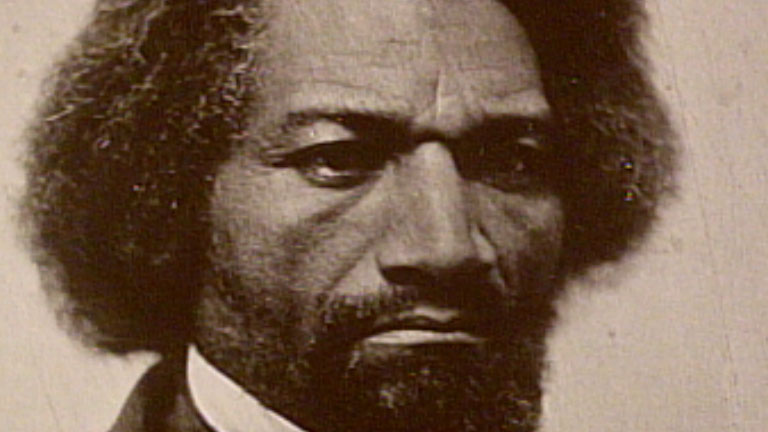

But such is not the state of the case. I say it with a sad sense of the disparity between us. am not included within the pale of this glorious anniversary! Your high independence only reveals the immeasurable distance between us. The blessings in which you, this day, rejoice are not enjoyed in common. The rich inheritance of justice, liberty, prosperity, and independence bequeathed by your fathers is shared by you, not by me. The sunlight that brought light and healing to you has brought stripes and death to me. This Fourth of July is yours, not mine. You may rejoice, I must mourn. To drag a man in fetters into the grand illuminated temple of liberty, and call upon him to join you in joyous anthems, were inhuman mockery and sacrilegious irony. Do you mean, citizens, to mock me by asking me to speak today? If so, there is a parallel to your conduct. And let me warn that it is dangerous to copy the example of nation whose crimes, towering up to heaven, were thrown down by the breath of the Almighty, burying that nation in irrevocable ruin! I can today take up the plaintive lament of a peeled and woe-smitten people.
“By the rivers of Babylon, there we sat down. Yea! We wept when we remembered Zion. We hanged our harps upon the willows in the midst thereof. For there, they that carried us away captive, required of us a song; and they who wasted us required of us mirth, saying, Sing us one of the songs of Zion. How can we sing the Lord’s song in a strange land? If I forget thee, O Jerusalem, let my right hand forget her cunning. If do not remember thee, let my tongue cleave to the roof of my mouth.”
STORY: Jean Jacques Dessalines and the Women Warriors who Liberated Haiti
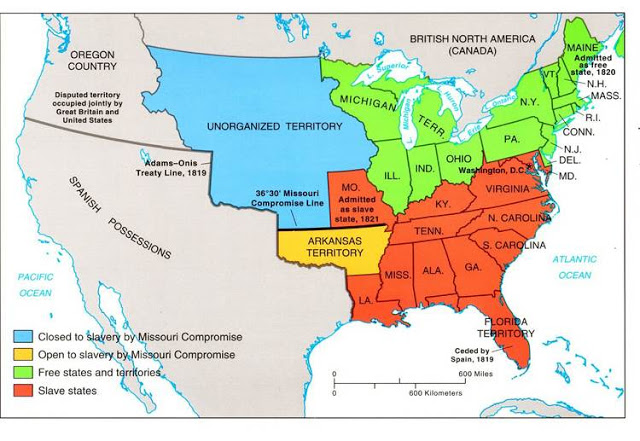

Fellow citizens, above your national, tumultuous joy, I hear the mournful wail of millions! Whose chains, heavy and grievous yesterday, are, today, rendered more intolerable by the jubilee shouts that reach them. If I do forget, if I do not faithfully remember those bleeding children of sorry this day, “may my right hand cleave to the roof of my mouth”! To forget them, to pass lightly over their wrongs, and to chime in with the popular theme would be treason most scandalous and shocking, and would make me a reproach before God and the world. My subject, then, fellow citizens, is American slavery. I shall see this day and its popular characteristics from the slave’s point of view. Standing there identified with the American bondman, making his wrongs mine. I do not hesitate to declare with all my soul that the character and conduct of this nation never looked blacker to me than on this Fourth of July! Whether we turn to the declarations of the past or to the professions of the present, the conduct of the nation seems equally hideous and revolting. America is false to the past, false to the present, and solemnly binds herself to be false to the future. Standing with God and the crushed and bleeding slave on this occasion, I will, in the name of humanity which is outraged, in the name of liberty which is fettered, in the name of the Constitution and the Bible which are disregarded and trampled upon, dare to call in question and to denounce, with all the emphasis I can command, everything that serves to perpetuate slavery-the great sin and shame of America! “I will not equivocate, I will not excuse”; I will use the severest language I can command; and yet not one word shall escape me that any man, whose judgment is not blinded by prejudice, shall not confess to be right and just….
“There is not a nation on the earth guilty of practices more shocking and bloody than are the people of the United States, at this very hour.”
For the present, it is enough to affirm the equal manhood of the Negro race. Is it not as astonishing that, while we are plowing, planting, and reaping, using all kinds of mechanical tools, erecting houses, constructing bridges, building ships, working in metals of brass, iron, copper, and secretaries, having among us lawyers doctors, ministers, poets, authors, editors, orators, and teachers; and that, while we are engaged in all manner of enterprises common to other men, digging gold in California, capturing the whale in the Pacific, feeding sheep and cattle on the hillside, living, moving, acting, thinking, planning, living in families as husbands, wives, and children, and above all, confessing and worshiping the Christian’s God, and looking hopefully for life and immortality beyond the grave, we are called upon to prove that we are men!…
But such is not the state of the case. I say it with a sad sense of the disparity between us. am not included within the pale of this glorious anniversary! Your high independence only reveals the immeasurable distance between us. The blessings in which you, this day, rejoice are not enjoyed in common. The rich inheritance of justice, liberty, prosperity, and independence bequeathed by your fathers is shared by you, not by me. The sunlight that brought light and healing to you has brought stripes and death to me. This Fourth of July is yours, not mine. You may rejoice, I must mourn. To drag a man in fetters into the grand illuminated temple of liberty, and call upon him to join you in joyous anthems, were inhuman mockery and sacrilegious irony. Do you mean, citizens, to mock me by asking me to speak today? If so, there is a parallel to your conduct. And let me warn that it is dangerous to copy the example of nation whose crimes, towering up to heaven, were thrown down by the breath of the Almighty, burying that nation in irrevocable ruin! I can today take up the plaintive lament of a peeled and woe-smitten people.
“By the rivers of Babylon, there we sat down. Yea! We wept when we remembered Zion. We hanged our harps upon the willows in the midst thereof. For there, they that carried us away captive, required of us a song; and they who wasted us required of us mirth, saying, Sing us one of the songs of Zion. How can we sing the Lord’s song in a strange land? If I forget thee, O Jerusalem, let my right hand forget her cunning. If do not remember thee, let my tongue cleave to the roof of my mouth.”
STORY: LA Poet Wanda Coleman on Smog Addiction and Angel Wings
Frederick Douglass – From Slave to Abolitionist
Fellow citizens, above your national, tumultuous joy, I hear the mournful wail of millions! Whose chains, heavy and grievous yesterday, are, today, rendered more intolerable by the jubilee shouts that reach them. If I do forget, if I do not faithfully remember those bleeding children of sorry this day, “may my right hand cleave to the roof of my mouth”! To forget them, to pass lightly over their wrongs, and to chime in with the popular theme would be treason most scandalous and shocking, and would make me a reproach before God and the world. My subject, then, fellow citizens, is U.S. slavery. I shall see this day and its popular characteristics from the slave’s point of view. Standing there identified with the American bondman, making his wrongs mine. I do not hesitate to declare with all my soul that the character and conduct of this nation never looked blacker to me than on this Fourth of July! Whether we turn to the declarations of the past or to the professions of the present, the conduct of the nation seems equally hideous and revolting. America is false to the past, false to the present, and solemnly binds herself to be false to the future. Standing with God and the crushed and bleeding slave on this occasion, I will, in the name of humanity which is outraged, in the name of liberty which is fettered, in the name of the Constitution and the Bible which are disregarded and trampled upon, dare to call in question and to denounce, with all the emphasis I can command, everything that serves to perpetuate slavery-the great sin and shame of America! “I will not equivocate, I will not excuse”; I will use the severest language I can command; and yet not one word shall escape me that any man, whose judgment is not blinded by prejudice, shall not confess to be right and just….
For the present, it is enough to affirm the equal manhood of the Negro race. Is it not as astonishing that, while we are plowing, planting, and reaping, using all kinds of mechanical tools, erecting houses, constructing bridges, building ships, working in metals of brass, iron, copper, and secretaries, having among us lawyers doctors, ministers, poets, authors, editors, orators, and teachers; and that, while we are engaged in all manner of enterprises common to other men, digging gold in California, capturing the whale in the Pacific, feeding sheep and cattle on the hillside, living, moving, acting, thinking, planning, living in families as husbands, wives, and children, and above all, confessing and worshiping the Christian’s God, and looking hopefully for life and immortality beyond the grave, we are called upon to prove that we are men!…
Updated 5 July 2021




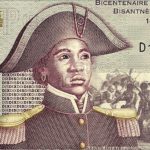




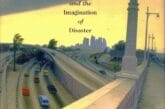




Pingback: Haitian Women Warriors and Dessalines the Liberator | WilderUtopia.com
Pingback: "Bleeding Kansas" and Stories of the Underground Railroad | WilderUtopia.com